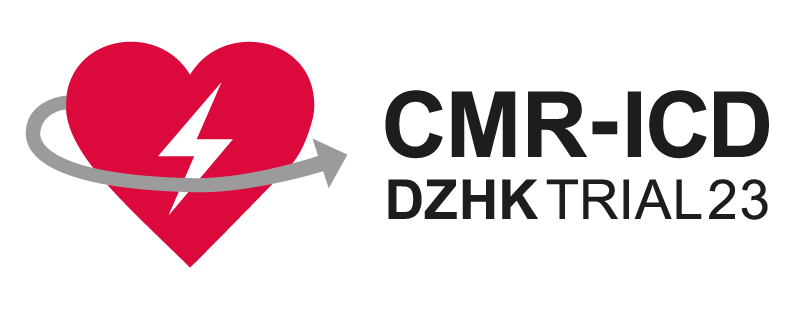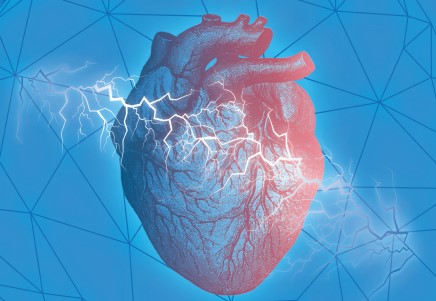
CMR-ICD-DZHK23
Cardiac Magnetic Resonance guidance of Implantable Cardioverter Defibrillator implantation in non-ischemic dilated cardiomyopathy
STUDY DESIGN
Cardiac Magnetic Resonance guidance of Implantable Cardioverter Defibrillator implantation in non-ischemic dilated cardiomyopathy

Study objective
The aim of the study is to investigate whether the implantation of an implantable cardioverter defibrillator (ICD) reduces the overall risk of death in patients with non-ischaemic cardiomyopathy (NIDCM) and severely impaired left ventricular function (LVEF ≤35%) and with existing fibrosis on cardiac MRI compared to standard drug therapy without ICD implantation.
Description
Dilated cardiomyopathy describes a special form of heart failure that is not caused by a circulatory disorder of the heart vessels. The treatment for this type of heart failure consists on the one hand of optimised drug therapy for heart failure and on the other hand of implanting a defibrillator (ICD) if the heart’s pumping capacity is permanently severely restricted (≤ 35%). The shock function of the defibrillator is intended to protect patients from sudden cardiac death caused by malignant cardiac arrhythmias. However, preliminary studies have shown that it is difficult to predict the success of ICD therapy based on the highly restricted pumping capacity of the heart (≤ 35%) as the sole implantation criterion.
Imaging is becoming increasingly important to better assess the success of ICD implantation. Preliminary investigations have shown in particular the benefit of determining scar/fibrosis using cardiac MRI. This would make it easier to identify patients who would actually benefit from ICD implantation and thus prevent the defibrillator from being implanted unnecessarily with certain risks.
The CMR-ICD-DZHK-23 study is the first to investigate in patients with dilated cardiomyopathy and severely impaired cardiac pumping function, whether additional optimised risk stratification using cardiac MRI and visualisation of fibrosis as a potential trigger of malignant cardiac arrhythmias can identify those patients who actually benefit from ICD therapy.
CONTACT DETAILS

Prof. Dr. Ingo Eitel, MD
Principal Investigator
Medizinische Klinik II, Universitäres Herzzentrum Lübeck,
Universitätsklinikum Schleswig-Holstein
FURTHER INFORMATION
Homepage
SPONSOR
Universitätsklinikum Schleswig-Holstein, Campus Lübeck, Medizinische Klinik II am Herzzentrum Lübeck
AFNET ROLE
Regulatory Project Management and support of the study coordinator